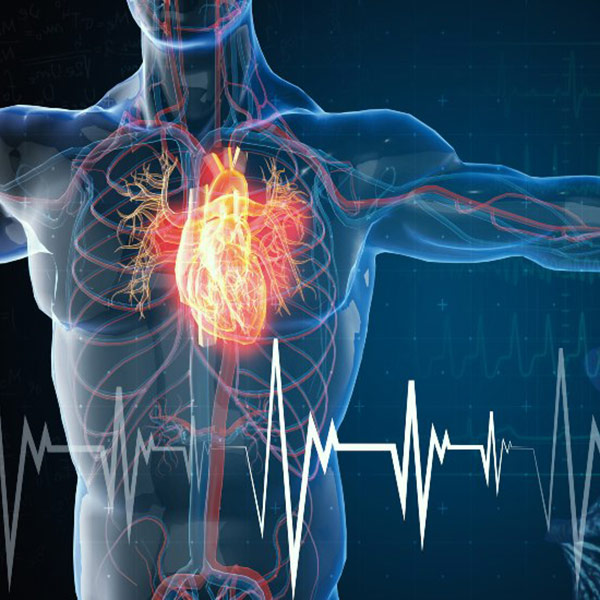Heart Rhythm Disorders Treatment in Sun City, Glendale & Peoria, AZ
| atrial fibrillation |
We Treat Heart Rhythm Disorders in Peoria, Sun City West, Glendale, Sun City, Litchfield, Avondale, Wickenburg, and Phoenix, AZ
A heart rhythm disorder, or heart arrhythmia, can disrupt your life and make it hard to take part in your normal daily routine. The causes and severity of abnormal heart rhythms may vary, but if you’re suffering from an irregular heart rhythm, you should visit a doctor or cardiac specialist as soon as possible. A doctor can determine if you have an abnormal heart rhythm EKG and provide the proper diagnosis and treatment. At Cardiac Solutions, we specialize in diagnosing and treating heart rhythm disorders in Peoria, Sun City West, Glendale, Sun City, Litchfield, Avondale, Wickenburg, and Phoenix, AZ.

What Are Heart Rhythm Disorders?
Heart rhythm disorders include any disorder of the heart muscle or its structures that causes an irregular heartbeat. You may feel as though your heart is beating faster, slower, or skipping a beat. Some heart rhythm disorders can only be diagnosed through an EKG, and others are obvious to both the person who has the disorder and a doctor performing an exam using a stethoscope. If you suspect your heart may be beating too fast, too slow, or missing beats, you should visit a cardiac specialist to determine if your heart is out of rhythm.
The Types of Heart Rhythm Disorders
There are two general types of heart rhythm disorders:
- Tachycardia – This type of heart rhythm disorder refers to a heartbeat that is too fast. The resting heart rate for people with tachycardia or who are experiencing tachycardia is over 100 beats per minute. Within the diagnosis of tachycardia, there are also subsets or types of tachycardia, including atrial fibrillation, atrial flutter, supraventricular tachycardia, ventricular fibrillation, and ventricular tachycardia.
- Bradycardia – This type of heart rhythm disorder refers to a heartbeat that is too slow. The resting heart rate for people with bradycardia or who are experiencing bradycardia is less than 60 beats per minute. Within the diagnosis of bradycardia, there are also subsets or types of bradycardias, including sick sinus syndrome and conduction block.
Symptoms of Heart Rhythm Disorders
If you have a heart arrhythmia, you may not even be aware of it. Not all abnormal heart rhythms cause symptoms. Your doctor may notice that you have symptoms of an abnormal heart rate during a routine examination, or you may exhibit the following symptoms:
- Fluttering in the chest
- Racing heartbeat
- Slow heartbeat
- Chest Pain
- Shortness of breath
- Feeling of heaviness on the chest
- Anxiety
- Fatigue
- Lightheadedness or dizziness
- Sweating
- Fainting or near fainting
What Causes Abnormal Heart Rhythms?
There are a wide variety of different causes of abnormal heart rhythms, as well as risk factors that may make it more likely for you to develop a heart rhythm disorder. A cardiologist can determine the underlying cause of your heart rhythm disorder, and the appropriate heart rhythm disorder treatment. Here are just some of the common causes of abnormal heart rhythm:
- Heart attack
- Scarring from a previous heart attack
- Blocked arteries
- Diabetes, high blood pressure, infection, hyperthyroidism, hypothyroidism, sleep apnea
- Certain medications, such as cold and allergy drugs
- Drinking too much alcohol or caffeine
- Drug abuse
- Genetics
- Smoking
- Stress or Anxiety
Treatment Options for Heart Rhythm Disorders
Once you have been diagnosed with a heart rhythm disorder, your cardiologist will recommend a course of treatment. This may include:
- Medication – your cardiologist may put you on blood thinners or another type of medication to treat your abnormal heart rhythm.
- Therapy – therapies for abnormal heart rhythms include vagal maneuvers and cardioversion.
- Surgery – depending on the severity of your heart rhythm disorder and symptoms, your cardiologist may recommend surgical intervention, such as catheter ablation, pacemaker surgery, implantable cardioverter-defibrillator, maze procedure, or coronary bypass surgery.
- Lifestyle changes – you will likely need to make lifestyle changes in addition to the other heart rhythm disorder treatments your doctor recommends. This may include changes to your diet and exercise routine, blood pressure and cholesterol medications, and avoiding alcohol and smoking.
- Alternative or holistic medicine – certain alternative medicine or holistic medicine treatments are effective at treating symptoms of heart rhythm disorder, including meditation, yoga, massage therapy, and acupuncture.
What Patients Should Know About Heart Rhythm Disorders
Before visiting your doctor or a cardiologist, you should familiarize yourself with a few helpful facts about heart rhythm disorders so you are prepared for your visit and can ask any questions you may have.
- Normal heart rhythm: A normal heart rhythm is one that beats at a rhythm and rate that is appropriate for the work the body is doing. Your heart’s electrical system will initiate each heartbeat by creating a signal that triggers the heart to pump. These electrical signals will stimulate the heart’s rate and rhythm. A regular, normal heart rhythm creates a very specific pattern of electrical flow throughout the heart.
- Abnormal heart rhythm: An abnormal heart rhythm, or arrhythmia, is caused by a faulty electrical system in your heart. Any change from a normal heart rhythm, no matter how minor, is considered an abnormal heart rhythm. Abnormal heart rhythms can be harmless or life-threatening depending on their severity, symptoms, age, and overall health.
- Risk factors of heart rhythm disorders: The most common risk factors of heart rhythm disorders are coronary artery disease, high blood pressure, diabetes, high cholesterol, obesity, drug abuse, stress, smoking, advanced age, sleep apnea, excessive caffeine or alcohol use, a family history of heart disease, history of heart failure, and using certain medications or supplements.

Why Choose Cardiac Solutions?
At Cardiac Solutions, our innovative team of cardiologists work throughout Peoria, Sun City West, Glendale, Sun City, Litchfield, Avondale, Wickenburg, and Phoenix. We have been providing effective, reliable cardiac care to our community since 1984. What makes us so unique is that we are a physician-owned facility and can therefore devote much more time and energy to patient care than cardiologists working in large, busy hospitals. Each one of our compassionate, experienced cardiologists is committed to providing an exceptional level of care to each patient and ensuring that the patient knows what to expect every step of the way during their treatment.
Contact Cardiac Solutions for Heart Rhythm Disorder Treatment
If you’re concerned that you have a heart rhythm disorder in Peoria, Sun City West, Glendale, Sun City, Litchfield, Avondale, Wickenburg, and Phoenix, AZ, contact us today at Cardiac Solutions. We can quickly get you in for a consultation and perform diagnostic testing to determine if you have an abnormal heart rhythm. We can then get you the treatment you need to live a long, healthy, and happy life. To learn more, call us today or schedule an appointment online.
Our Reviews
Cardiac Solution has been very easy to deal with, the Doctors explain everything so | can understand, very professional and kind
The staff and Doctors show complete and concern for my heart health. They are always kind and caring, they listen to my questions and don't give the feeling of I need to hurry with my appointments. They always explain in turns that you can understand so that you can make the proper decision in your heart health.
Cardiac Solutions runs like a well oiled machine. Everyone works together for a great end result. Never a scheduling problem and the wait time from walkin to seeing the doctor is 10 to 15 min. You just can't beat that. Not a grouchy employee in the office. All seem to really like their job and it shows. Thank you for making my last visit a great experience.
Cardiac Solutions is staffed with the BEST...Docs, technologists, and all other personnel that | have come in contact with over the past 8+ years! | HIGHLY recommend them. So great to be treated by professionals who obviously love what they're doing
From the moment you walk in the door youre not by wonderful kind staff the entire experience from front office to Mid office to back office to your doctor visit his wonderful kind very well thought out an entire process is quick and flawless. They truly set the standard that other doctor offices should follow
